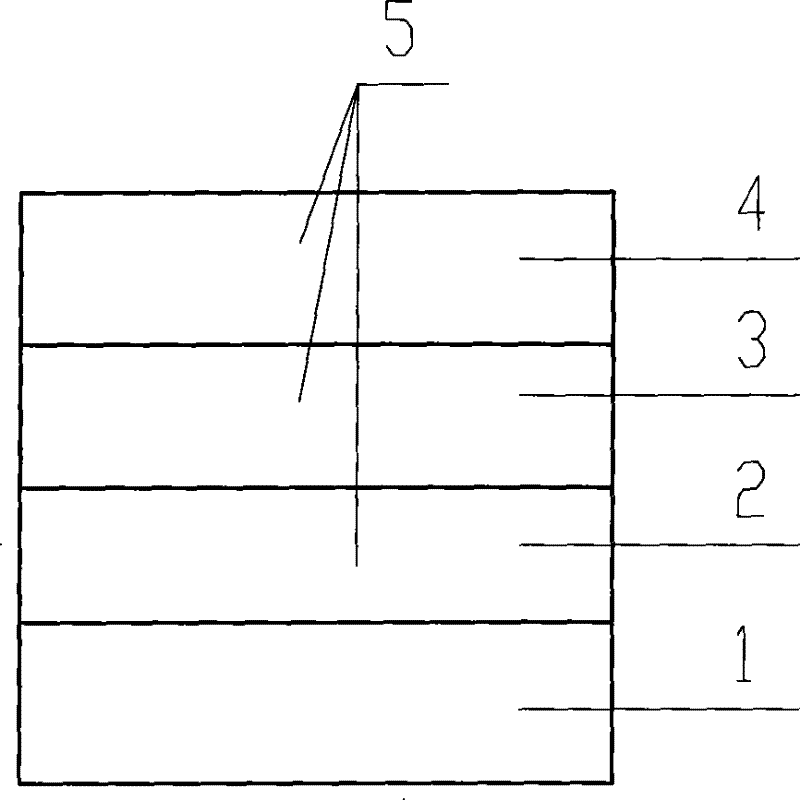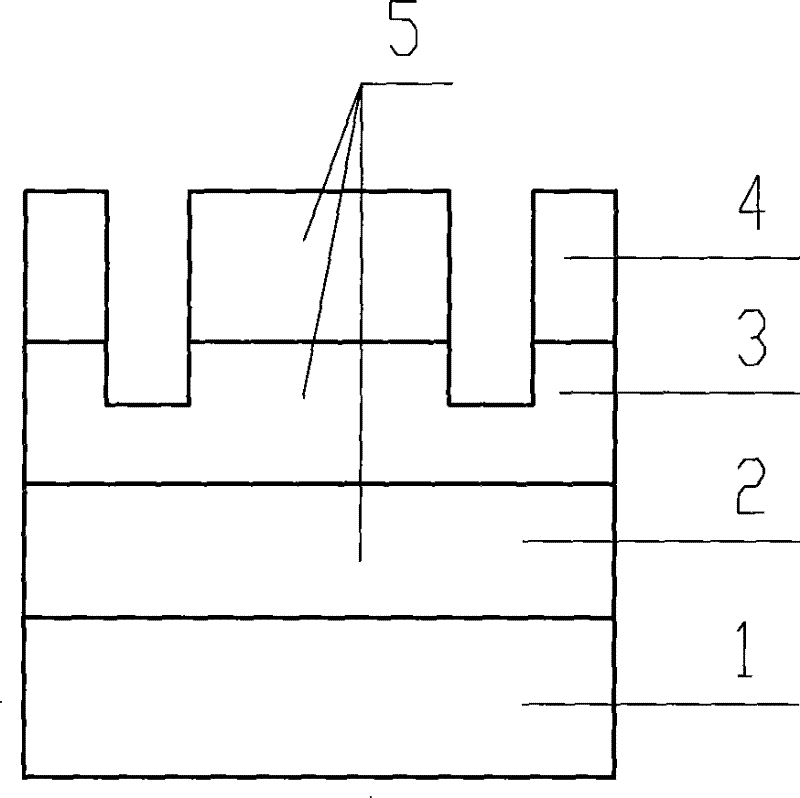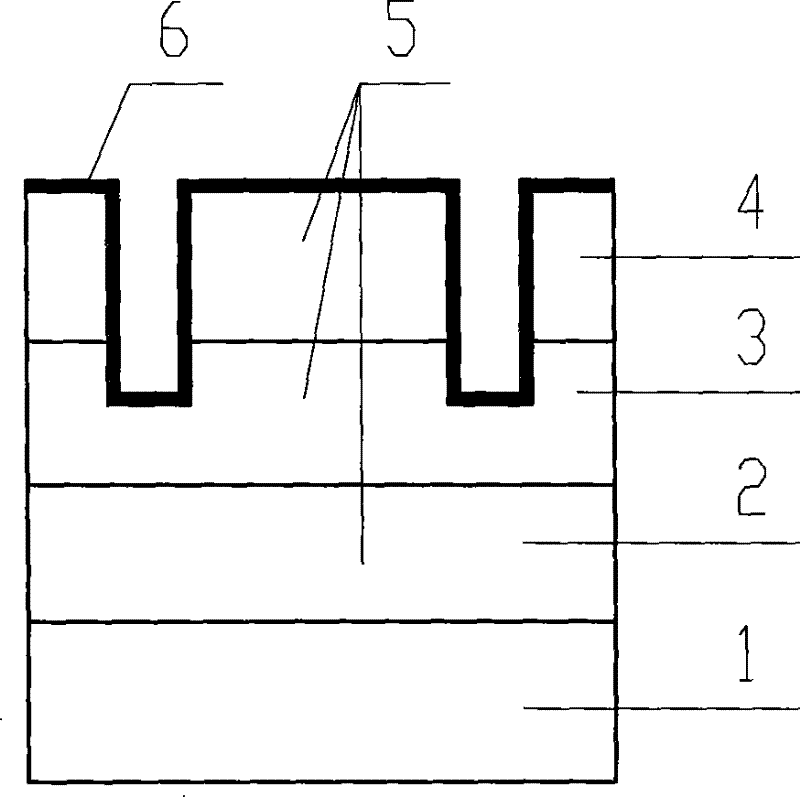SiC secondary epitaxial structure
A secondary epitaxy and silicon carbide technology, which is applied in the direction of electrical components, circuits, semiconductor devices, etc., can solve the problems of crystallization quality decline, device processing technology without wet etching process, and low activation rate of implanted ions
- Summary
- Abstract
- Description
- Claims
- Application Information
AI Technical Summary
Problems solved by technology
Method used
Image
Examples
Embodiment Construction
[0026] The present invention will be described in further detail below in conjunction with the accompanying drawings.
[0027] Such as Figure 1-3 As shown, the silicon carbide secondary epitaxial material structure used for the preparation of silicon carbide devices includes: a silicon carbide single crystal substrate 1, a primary homoepitaxial layer 5 formed on the surface of the silicon carbide single crystal substrate 1, and a primary homoepitaxial layer The secondary epitaxial layer 6 generated on the surface of 5, the secondary epitaxial layer 6 is formed after the primary homoepitaxial layer 5 is patterned and processed, wherein the primary homoepitaxial layer 5 includes p-type silicon carbide buffer layers 2, n Type silicon carbide active layer 3 and unintentionally doped intrinsic silicon carbide layer 4 .
[0028] The invention is applicable to the preparation of the ohmic contact of the source and drain parts of the silicon carbide MESFET device. In the specific i...
PUM
 Login to View More
Login to View More Abstract
Description
Claims
Application Information
 Login to View More
Login to View More - R&D
- Intellectual Property
- Life Sciences
- Materials
- Tech Scout
- Unparalleled Data Quality
- Higher Quality Content
- 60% Fewer Hallucinations
Browse by: Latest US Patents, China's latest patents, Technical Efficacy Thesaurus, Application Domain, Technology Topic, Popular Technical Reports.
© 2025 PatSnap. All rights reserved.Legal|Privacy policy|Modern Slavery Act Transparency Statement|Sitemap|About US| Contact US: help@patsnap.com



